Would you pay $1,000 for a meatball? How about $18,000 per pound of ground beef?
That’s the cost of today’s prototype cultured meat (also called “clean meat”) produced in bioreactors from animal cells. Real meat made without slaughter and without fast-dwindling pastureland will make it to the dinner table only if it’s affordable.
Strategies to reach this goal were discussed at a May 7 gathering in Israel of top-tier researchers, government officials, NGOs and leaders of the cultured and conventional meat industries from Israel, North America and Europe.
Held at the Technion-Israel Institute of Technology in Haifa by the Israeli nonprofit Modern Agriculture Foundation (MAF) with sponsors including the US-based Good Food Institute, Future Meating was the first international conference to attract such a broad spectrum, MAF Director Yaron Bogin tells ISRAEL21c.
Even large meat processors Tyson Foods (US) and Soglowek Food Group (Israel) were represented due to their interest in expanding their lineup of more humane and earth-friendly sources of animal protein.
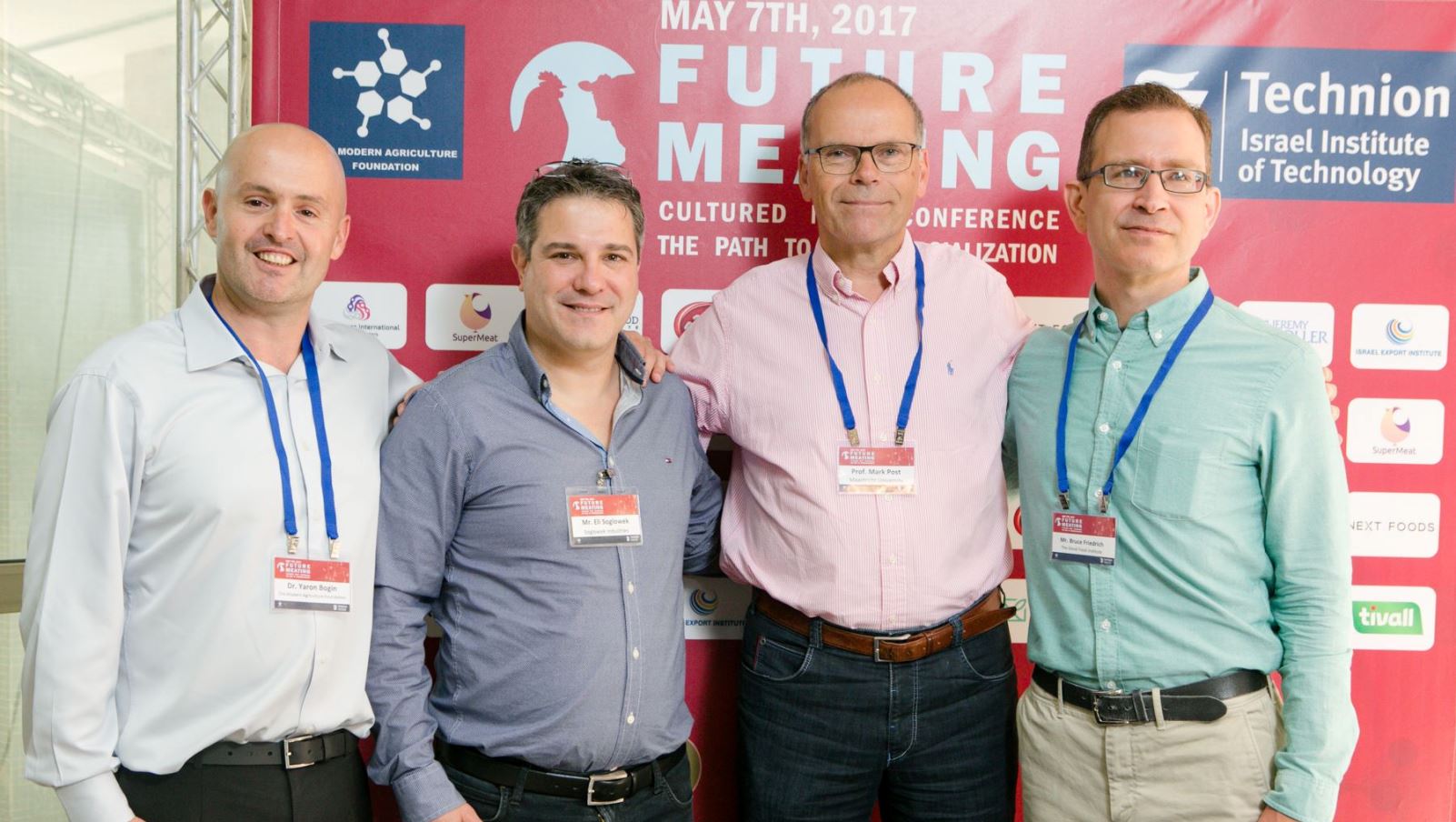
It was not coincidental that this gathering took place in Israel, the home of tissue engineering advances, innovative entrepreneurship and the world’s largest per-capita population of vegans.
“Israel is truly becoming leader in the field,” says Bogin, who has a doctorate in cell biology.
He points out that three of the six clean-meat startups in the world are Israeli: SuperMeat, established in 2015; Future Meat Technologies, founded this year; and a brand-new venture soon to be named.
These three join Memphis Meats of California, Modern Meadow of New York and Mosa Meat, the Dutch company working to bring clean-meat pioneer Mark Post’s so-called test-tube burgers to market. Post spoke at the Israeli conference as well.
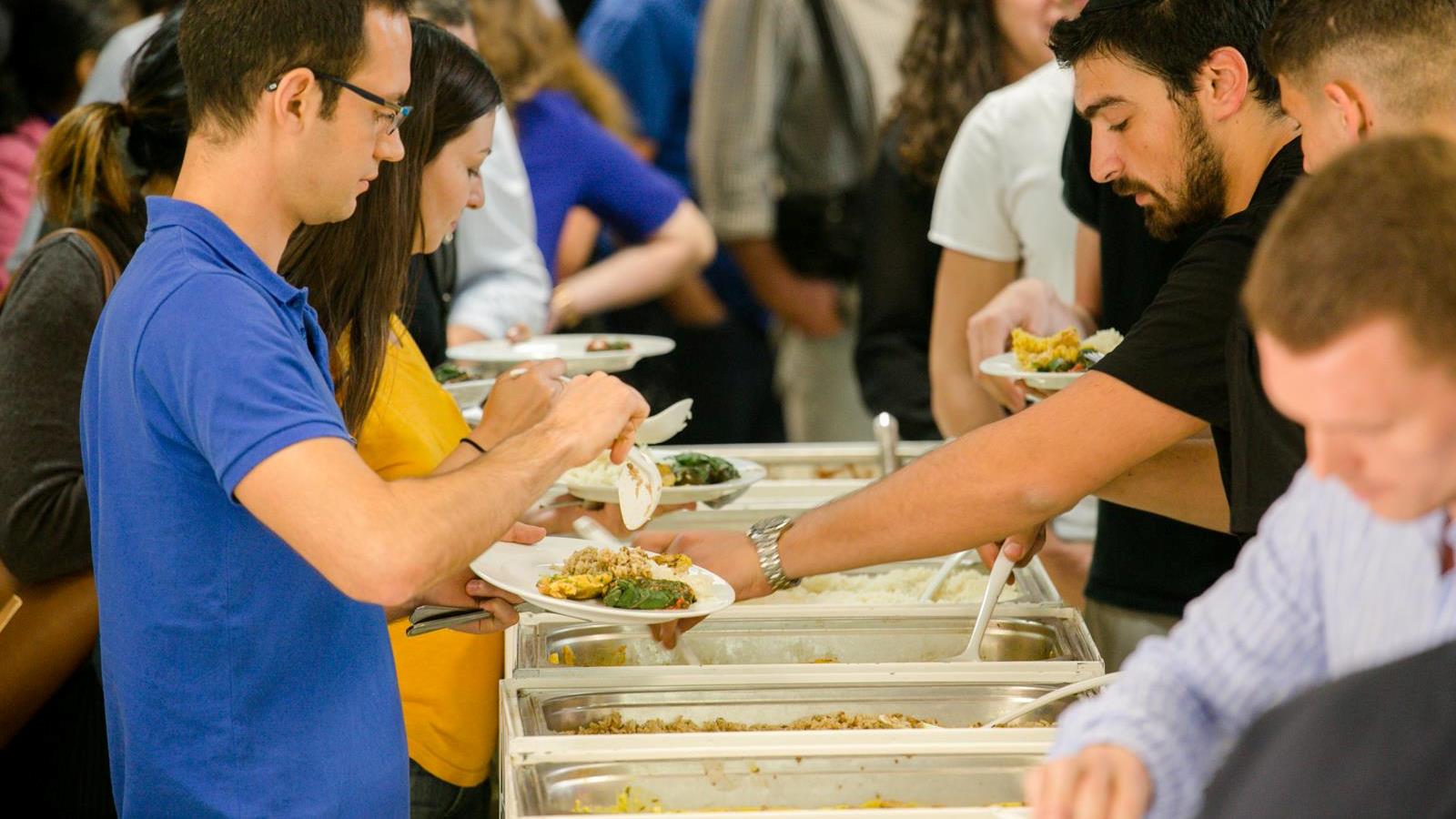
Amir Zaidman, vice president for business development at the Strauss Group’s Kitchen FoodTech Hub in Ashdod – a sponsor of Future Meating – notes that Israel is already a world leader in stem-cell and tissue-culture science for medical purposes.
“A lot of the knowledge accumulated in Israel in those areas is applicable, with some adaptations, to developing and manufacturing clean meat,” Zaidman tells ISRAEL21c.
“This is why I believe Israel is a very good place to get a head start on creating clean-meat tissues that can later be produced in reactors and become a large-scale industry,” Zaidman says.
“The first markets will probably be the United States and Europe but it’s important for us to position Israel as the right place to start product development.”
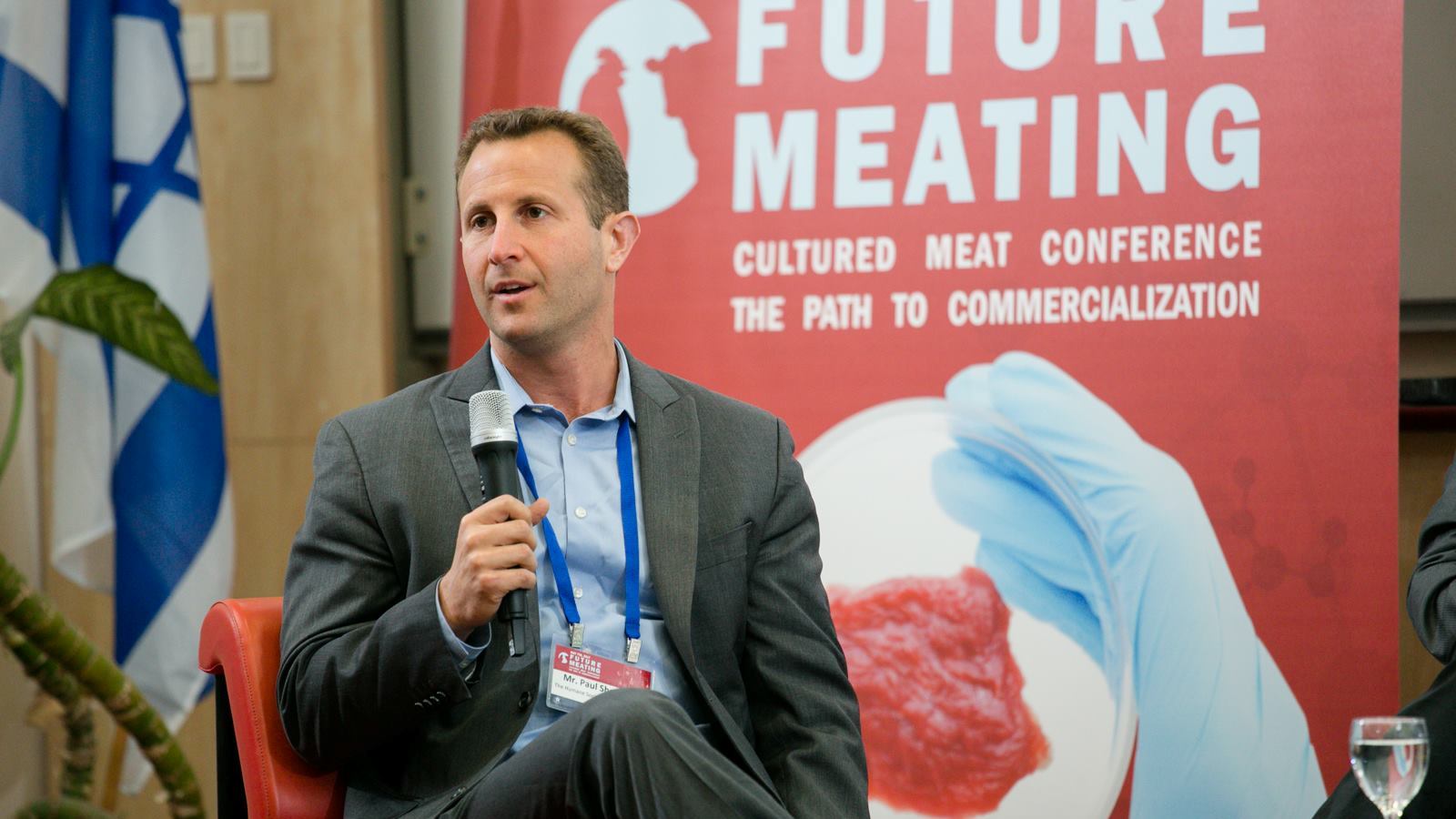
Senior Scientist Liz Specht of the nonprofit Good Food Institute tells ISRAEL21c that Israel has the right mix of governmental support of technology and innovation, active research in cultured meat, and an openness to conventional meat alternatives.
“This conference was pretty unique in bringing in a range of interested parties, from government players to stem-cell companies,” says Sprecht. “How fast the path will be to commercialization depends on how much financial and human capital goes into this space. It’s a relatively early-stage field and there are opportunities for companies to step in and realize some commercial benefit.”
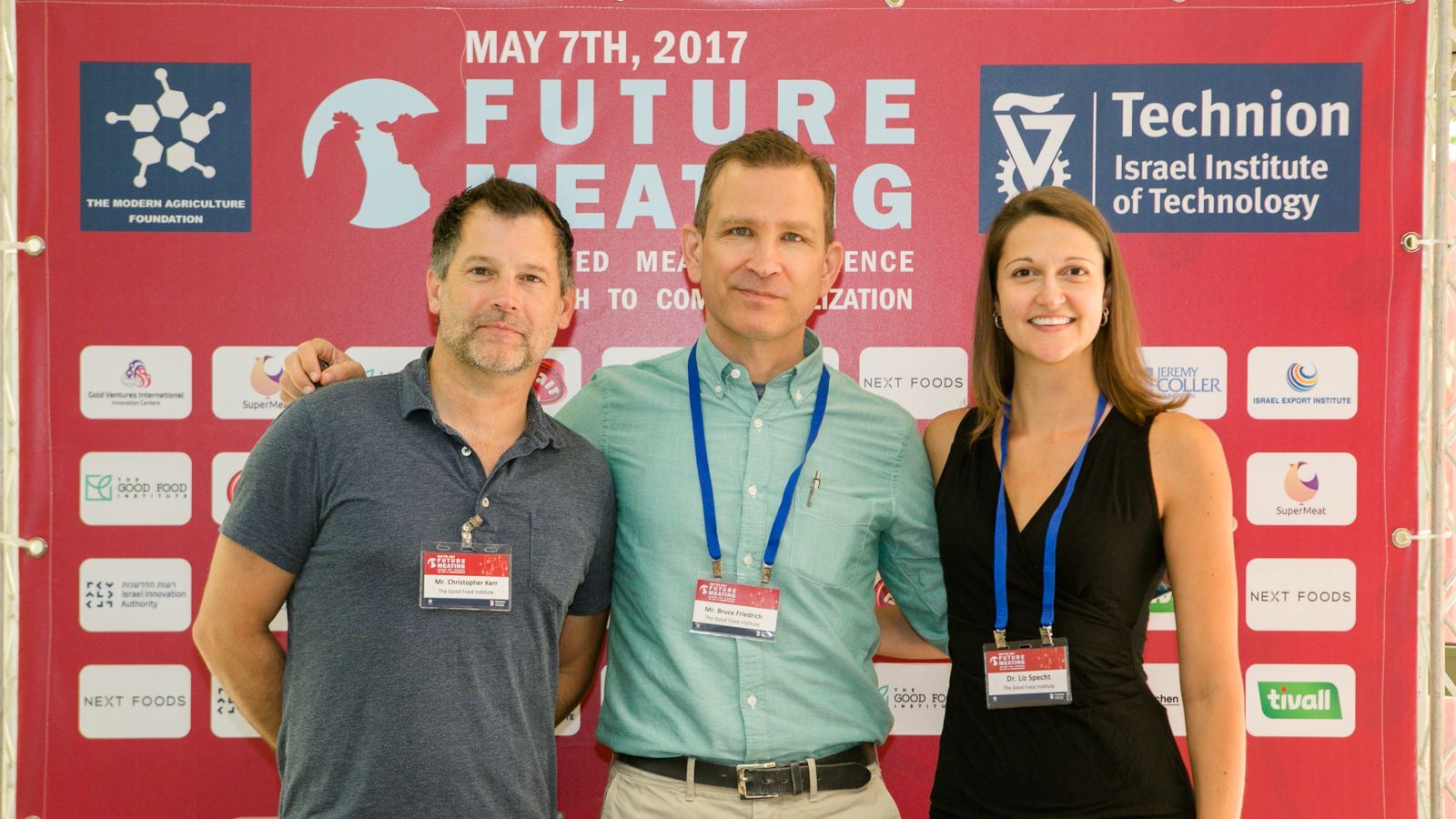
The MAF aims to accelerate that pathway by advancing scientific research and commercial collaborations to develop clean-meat technologies and products, as well as educating the public and liaising with the clean-meat community worldwide.
SuperMeat CEO and cofounder Ido Savir tells ISRAEL21c that samples of organically cultured chicken meat could be introduced by this time next year.
“We are working at a private facility in Haifa with a team of experts from the large-scale pharma production field,” Savir says. “We’re closing an investment round with players from abroad and Israel, in the food-tech and conventional meat industries.”
From $300 down to $5 per kilo
Hebrew University of Jerusalem Prof. Yaakov Nahmias is raising $1.5 million for Future Meat Technologies. His predicts that his proprietary method for culturing chicken could yield tastings within 18 months and a working model in three years.
“Getting into the market will then be the next step, maybe five or six years down the line,” says Nahmias, a biomedical engineer and entrepreneur.
“Right now, cultured meat is too costly to produce and the current technology can never produce meat for less than $300 per kilogram at best,” Nahmias tells ISRAEL21c.
Rather than large bioreactors, FTM is developing a small machine to culture chicken meat. “A factory that has 10,000 of these machines could generate as much meat as a farm with 50,000 chickens. Based on our calculations, we can drop the price to $5 per kilogram.”
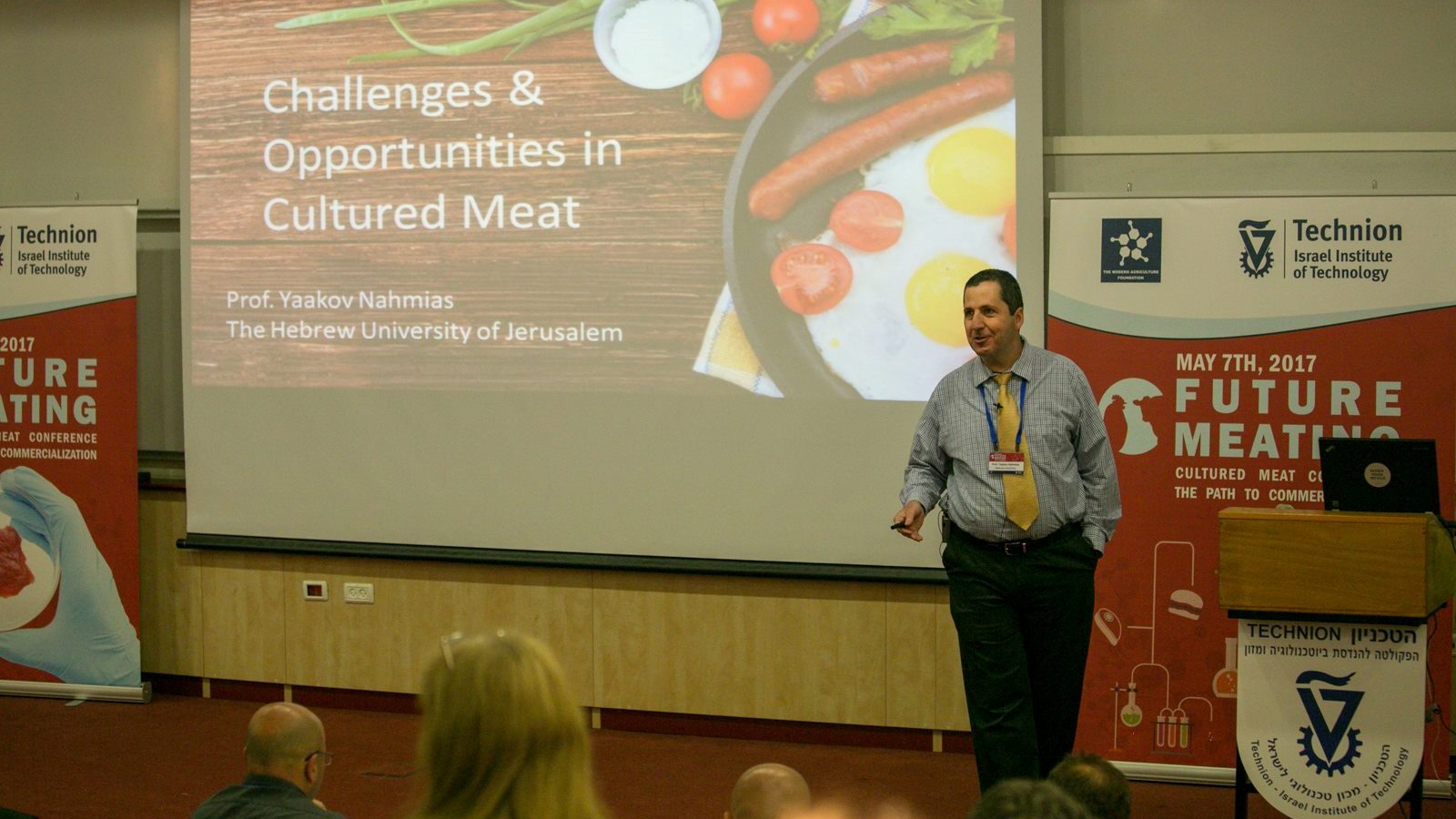
Prof. Shulamit Levenberg, a biomedical engineer doing interdisciplinary research on stem cells and tissue engineering at the Technion, told attendees about the possibility of using her lab’s skeletal-muscle tissue engineering expertise to culture a piece of meat using bovine cells and edible scaffolds that will mimic the tissue structure and mouth feel of beef.
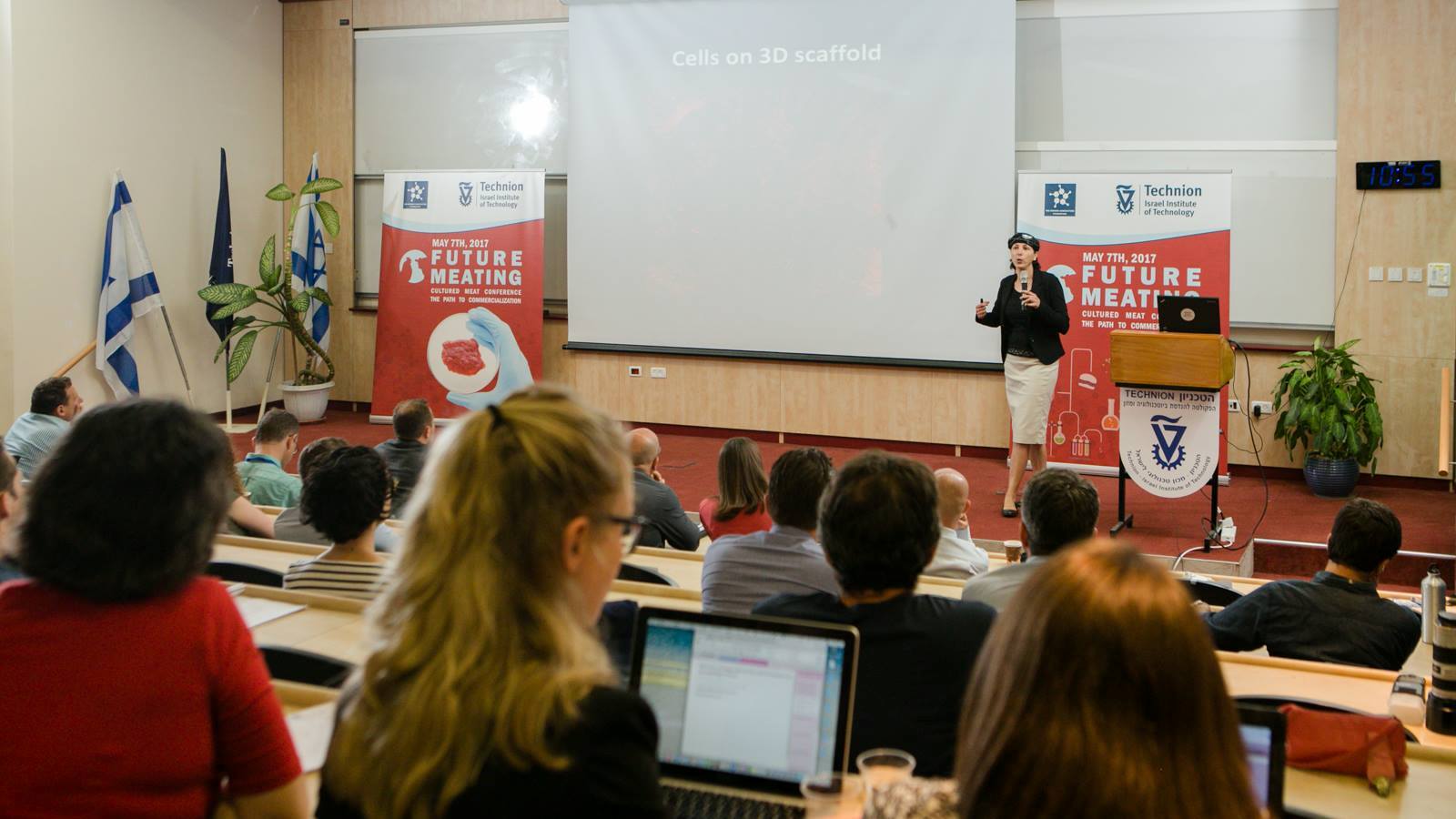
Other Israeli speakers at Future Meating were Prof. Smadar Cohen of Ben-Gurion University, Strauss Group VP of Technology Prof. Eyal Shimoni, Technion Prof. Yoav Livney, Tel Aviv University Prof. Amit Gefen, Ohad Karnieli of ATVIO Biotech in Nesher, and Michal Amit of Accellta, a company spun out of her research at the Technion’s Stem Cell Center.

















